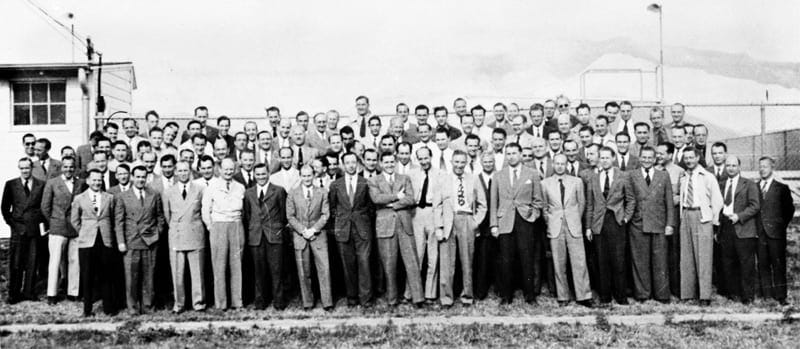The Ethical Dilemma of Operation Paperclip: A Philosophical Inquiry
Written on
Chapter 1: The Intersection of Philosophy and Science
The German rocket team, famously known as the Von Braun Rocket Team, poses for a photograph at Fort Bliss, Texas, after World War II. This group included numerous colleagues of Dr. Wernher Von Braun from Peenemuende, who were instrumental in developing the V-2 rocket for Germany during the war. Approximately 120 of these scientists were brought to the United States under a contract with the U.S. Army as part of Operation Paperclip.

In today’s world, pursuing a degree in Philosophy often faces unjust criticism, being labeled as irrelevant and filled with abstract concepts. Critics argue that the skills acquired in this field lack practical application in today’s workforce. However, what many fail to appreciate is that studying philosophy equips individuals with essential skills in ethics, critical thinking, and communication. The term "philosopher" translates to "lover of wisdom," and contemporary philosophers frequently hold influential positions in business, guiding companies with ethical considerations.
What, then, is Operation Paperclip? To summarize briefly, it was a covert U.S. military intelligence initiative that occurred from 1945 to 1959. This operation, sanctioned by President Truman, aimed to recruit prominent Nazi scientists and engineers specialized in rocket technology to gain an advantage over the Soviet Union during the Space Race. Many of these individuals were complicit in horrific war crimes against Jewish communities, including the development of V-2 rockets that targeted Great Britain. Despite the atrocities associated with these scientists, the U.S. government overlooked their past actions, focusing instead on the potential benefits they could bring. Efforts were made to obscure any evidence linking these recruits to their crimes, numbering around 1,600 individuals. While Operation Paperclip is often regarded as a significant success, it raises profound ethical questions.
Many of the recruited scientists became key figures in esteemed organizations like NASA and contributed to the success of Apollo missions. However, one must ponder whether this course of action was justified. Was it worth tarnishing the U.S.'s moral standing by employing individuals who had participated in the genocide of Jews? The harrowing accounts found in works by Holocaust survivors underscore the severity of the Nazis' actions. Elie Wiesel's "Night" recounts chilling incidents of SS soldiers using Jewish infants for target practice, while the documentary "The Last Days" reveals the brutality faced by mothers and their children in the Hungarian ghettos. If these realities unsettle you, consider it a sign of your humanity.
We must question whether it was ethical to grant informal pardons to around 1,600 scientists and engineers who had powered the Nazi war effort. On the flip side, without these individuals, the landscape o